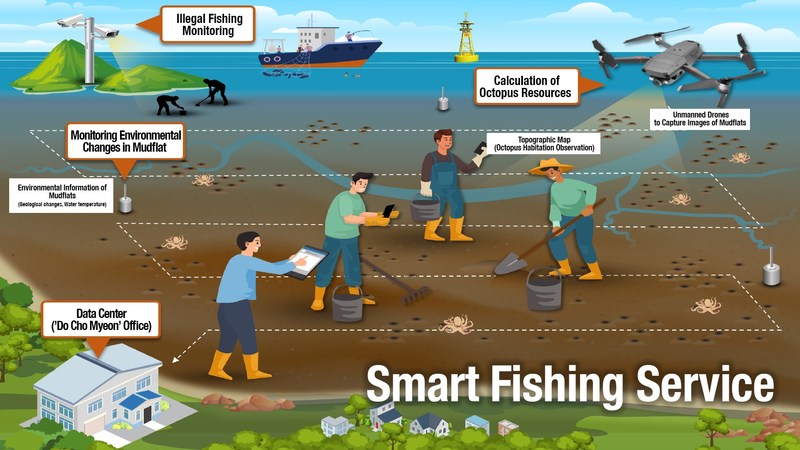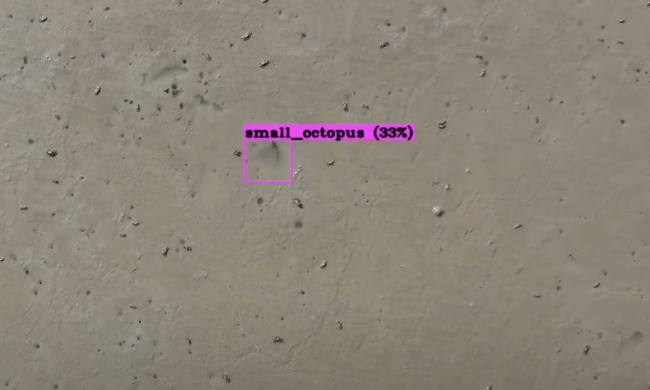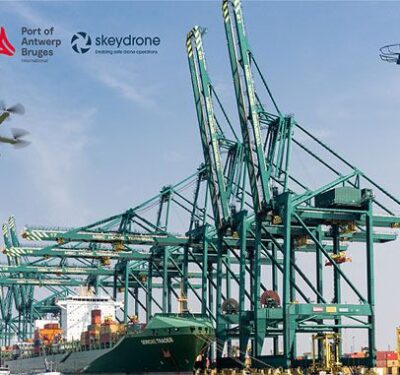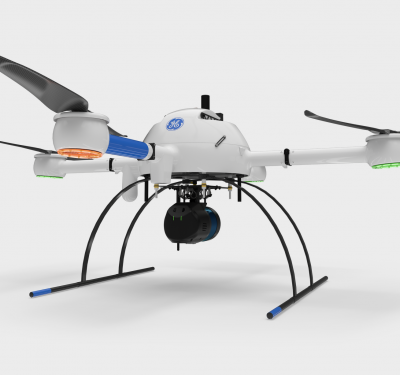 Octopi are one of Korea’s most beloved delicacies. Korean people enjoy eating the eight-limbed mollusks in all forms — 36,899 tons of them, in fact, in 2020. Unfortunately, 84 percent of that total was imported from China. One of Korea’s traditional cottage industries is in decline. Domestic octopus fishing is reported to have steadily decreased, mainly due to marine pollution, illegal fishing, and the aging of fishermen.
Octopi are one of Korea’s most beloved delicacies. Korean people enjoy eating the eight-limbed mollusks in all forms — 36,899 tons of them, in fact, in 2020. Unfortunately, 84 percent of that total was imported from China. One of Korea’s traditional cottage industries is in decline. Domestic octopus fishing is reported to have steadily decreased, mainly due to marine pollution, illegal fishing, and the aging of fishermen.

Smart Fishing Service
To help revive this historic trade, the government turned to cutting-edge technologies to monitor and manage octopus fishing operations in a smart way. Drones, artificial intelligence (AI), and Internet of Things (IoT) were called into play to innovate the management of octopus fishing operations. The Smart Village project is part of the Korean Digital New Deal that the Ministry of Science and ICT (MSIT) initiated last year. The project focuses on utilizing intelligent information communication technologies (ICT) to improve productivity, safety, security, and environment for the nation’s farming and fishing villages.
One of its major components is the Smart Octopus Service ongoing in Shinan-gun County in Jeollanam-do Province, home to one of the nation’s four biggest tidal flats, home to that epicurean delight, the mud octopus.
The Korean Ministry of Science in partnership with the National Information Society Agency (NIA) has deployed unmanned drones to capture images of mudflats across the county. AI machine learning technology is then applied to the drone images to transform them into data that created a precise topographic map that predicts potential habitats across the area. As a result, more than 60,000 AI learning data were made available to identify and locate small holes or trails that octopi left in the mud, leading fishermen to the location of the marine creatures.
Fishermen in the region can access the data anytime through both web-based and mobile app platforms called “Smart Shinan” to monitor the location of octopuses as well as environmental changes in the tidal flats.
 The ministry plans to expand the Smart Octopus Service to other areas in the county. “The service became a success case of the Digital New Deal initiative as it has significantly improved productivity of natural resources overall. By replicating the service in other communities, we will continue to facilitate digital transformation in marginalized farming and fishing villages,” said the ministry.
The ministry plans to expand the Smart Octopus Service to other areas in the county. “The service became a success case of the Digital New Deal initiative as it has significantly improved productivity of natural resources overall. By replicating the service in other communities, we will continue to facilitate digital transformation in marginalized farming and fishing villages,” said the ministry.






